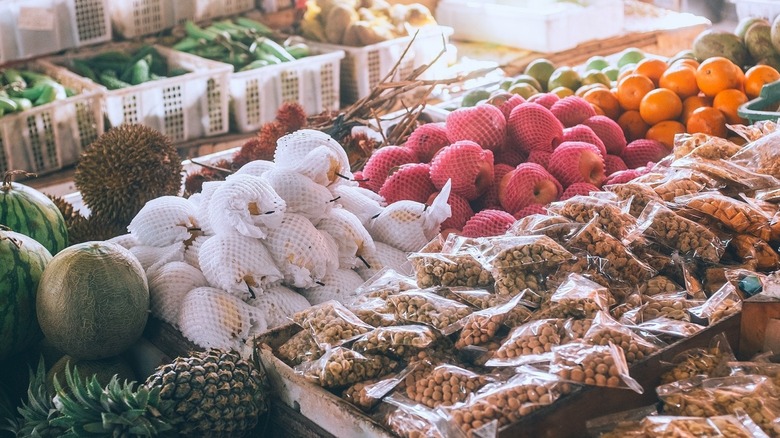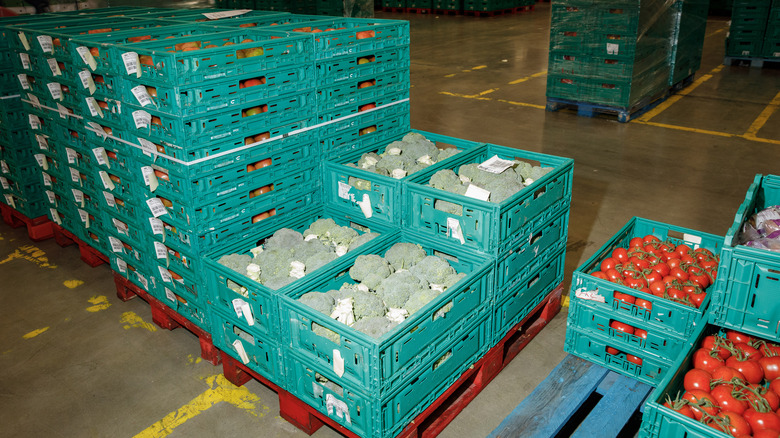The Truth About Climate Change And Local Food
It is true that supporting local food producers minimizes the "foodprint" (AKA food production's carbon footprint). After all, a common perception holds that one major contributor to pollution is the movement of vehicles carrying our imports, according to Oregon.gov. But exactly how much of a positive impact are we making on the climate when we buy food locally?
To paint a picture, most of the seasonal fresh produce consumed in the United States is grown in-country, according to Dirt to Dinner. Because this arrangement depends on the seasons, the U.S. turns to its neighbors in the Southern Hemisphere when, say, it's no longer warm enough to grow strawberries. This strategy grants Americans access to fresh produce all year long, but the import process draws on the Earth's resources for packaging and refrigerated storage during transit, not to mention the fuel burned along the way. Theoretically, this would mean that the U.S.' foodprint is bigger in the winter. But is it as big as we think it is?
The real impact of food transport on climate
Though some may believe that the transportation of foods across the world has a relatively significant impact on climate, the biggest source of pollution actually occurs at the beginning of the food supply chain, according to Vox, when cows are reared and soil tilled. Per Our World in Data, more than 30% of greenhouse gasses in food production are produced by livestock and fish farming. Food processing, transport, retail, and packaging combined, on the other hand, are only responsible for 18% of the world's greenhouse gasses, with transport accounting for 6%.
These numbers shouldn't deter people from making a point to buy local foods, which still have a positive impact on communities, as experts told Vox. However, they may influence consumers to make a different environmentally conscious diet choice: going vegan or decreasing their meat intake. According to a Loma Linda University study cited by PETA, a vegan's foodprint is nearly 42% smaller than that of the meat-eater. While there are clear benefits to supporting local producers, the positive impact on climate change is minimal when compared to the result of going partially or fully vegetarian or vegan. Those looking for eco-friendly foods, then, may want to turn to plant-based options as well as locally produced ones.

